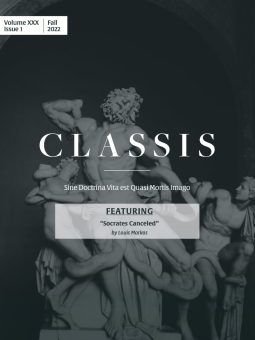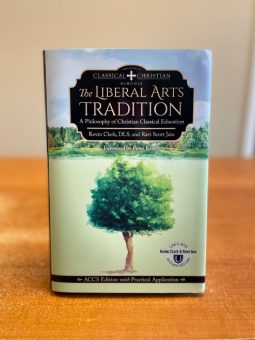10 DIFFERENCES: Conventional Christian Education & Classical Christian Education
Classical Christian schools are very different from the Christian school down the street. They follow the classical model—the one used exclusively for more than 1000 years in the West prior to the progressive model’s appearance in the early 1900s.
These 10 Differences are a generalization, with variation across thousands of classical Christian and conventional Christian schools. If you spend a few hours in each type of school, here are some of the differences you will most likely encounter.
❶ “English Class” vs. “The Trivium”
Classical Christian graduates excel as persuasive speakers and gifted writers. We emphasize writing, reading, logic, and speaking across all subjects. The experience of peers at Christian schools is often far more limited in the subjects they focus on.

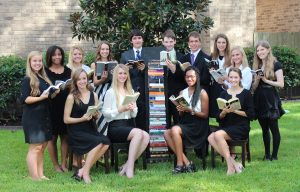
❷ Common Core “Baseline” vs. Classical Core Excellence
Classical students learn to understand and extract rich and thought-provoking ideas from literature. They spend time gaining an integrated understanding of God’s story, told through history and great-books literature, and making sense of all things brought together in a “university” of knowledge. Christian schools spend less time on history and literature, with more of an emphasis on knowing facts and a focus on a scientific study of humane, social subjects.
❸ STEM vs. Classical Science
Classical Christian education cultivates creative learners. Its way of approaching the world is not contained to any specialized degree. It moves into every sector, adding value in a STEM based economy. Christian schools, often centered on STEM create students who learn to absorb subject matter without assessing “Why.”

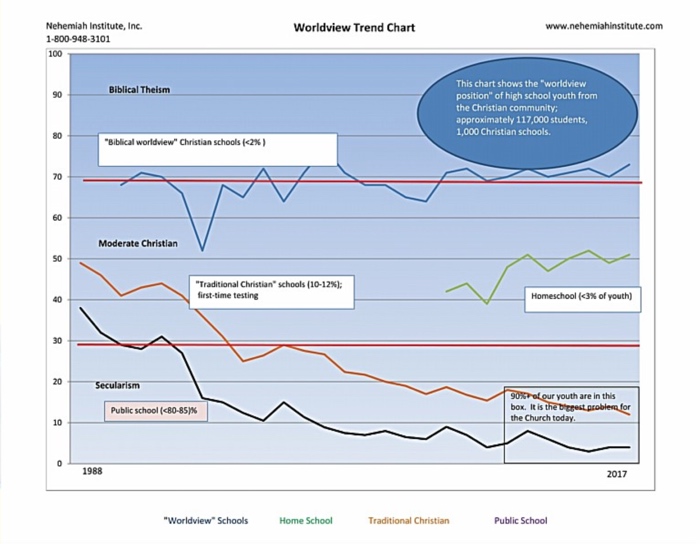
❹ Bible Class vs. Biblical Integration
Classical Christian education teaches that the truth of Christ’s lordship is manifest in every area of study, with application to all subjects and, as a result, to everyday life. Our students see every inch of thought, history, and natural creation as an extension of the work of Jesus Christ. Christian school students develop a solid knowledge of Scripture, but often lack the experience to apply it in historical or existential ways. This can limit Christian worldview application to other subjects they study.
❺ Spanish/Chinese vs. Latin/Greek
Classical students study Latin and Greek, which permeates our cultural lexicon. The best stories to have ever been written are all originally contrived in a “dead” language. Our students get access to those texts in the study of the Classical languages. And, not surprisingly, there is a practical pay-off. Christian schools tend to focus on a modern languages for a practical pay-off. Students are able to order food and ask for directions in another language.
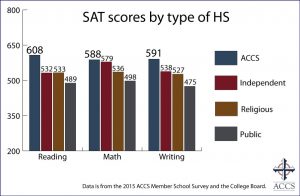
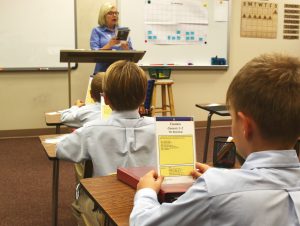
❻ Social Studies vs. History and Philosophy
CCE views the study of history as a way to witness the Truth of the Gospel. History, literature, philosophy, and theology are therefore pursued together, creating a rich experience of history. In Christian schools, however, historical literature is not often covered, except occasionally as part of a literature class. Christian principles can often be superficial without a rich historical context.
❼ Student-driven vs. Aspirational School Culture
Culture and environment are not disconnected from the way human beings learn to think and form assumptions about the world. Classical Christian education understands that students will learn how to organize their lives from a school environment that promotes joyful order in the classroom and hallways. Christian education tends to treat education and student culture as separate things. They isolate academics, clubs, sports, and other extracurricular activities and place them into separate camps.


❽ Child-centered vs. Beautiful School Decor
CCE maintains that the beauty of a school matters. Classically construed, beauty is essential to properly ordering the affections. This proper ordering connects to an appreciation for study of all other subjects, especially mathematics. Christian schools often practice a “child-centered” approach, from the student’s clothing to what goes on the walls. School decor and practices are based on progressive ideas of aesthetics.
❾ Lecture vs. *Socratic Method
Those who are able to understand what another person understands, something essential to continuing a productive discussion, will be far better at communicating their ideas in the world. No other form of education today emphasizes oral presentation and exposition more than classical Christian education. Christian education still focuses on the lecture format, which is meant to convey useful information about the world.
*Note: For a discussion about what defines the true “Socratic method,” and how these goals are pursued in our classrooms, read more here at the Classis blog: How Do Books Work In Our Classrooms?
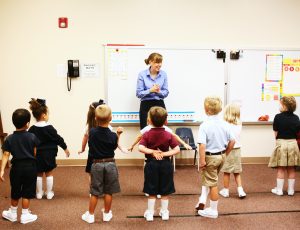

❿ State-based Teacher Training vs. Classical Scholarship
CCE schools emphasize John Milton Gregory’s Seven Laws of Teaching, which are integrated deeply into our accreditation and certification practices; they require teachers who know and love the subjects they teach, and students who are able to glean concepts from their teachers in ways they will remember and actuate. Christian schools have teachers who spend much of their time during college learning classroom and teaching practices outside the subject they teach. They therefore view themselves as professional teachers, not professional learners.




